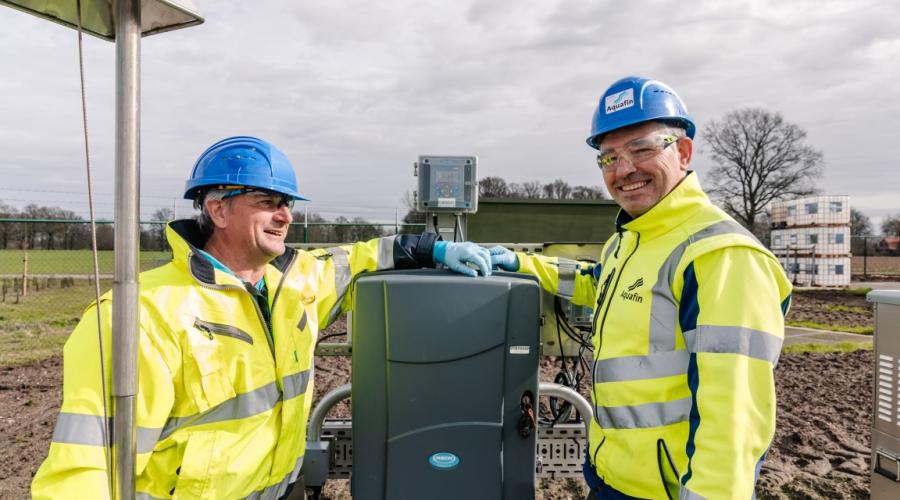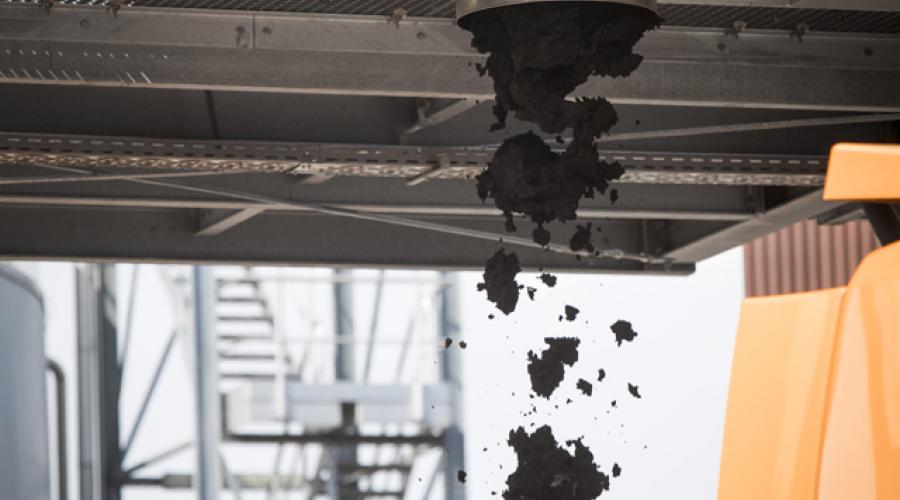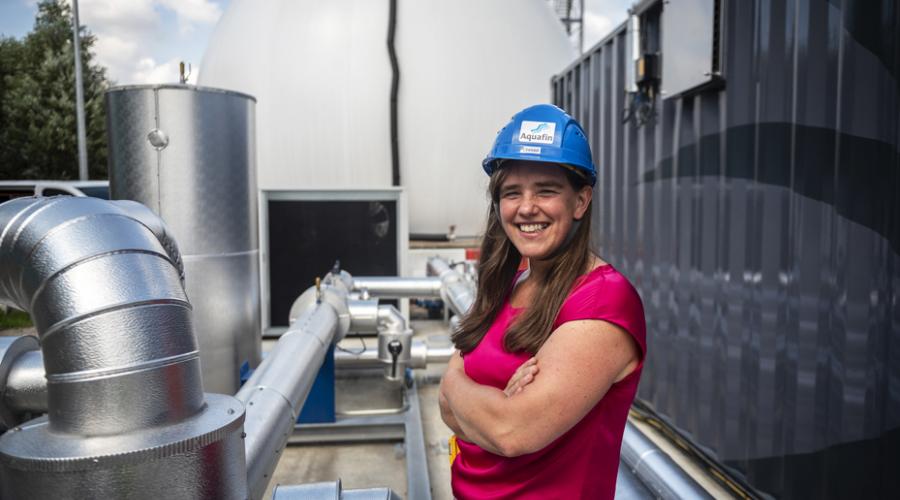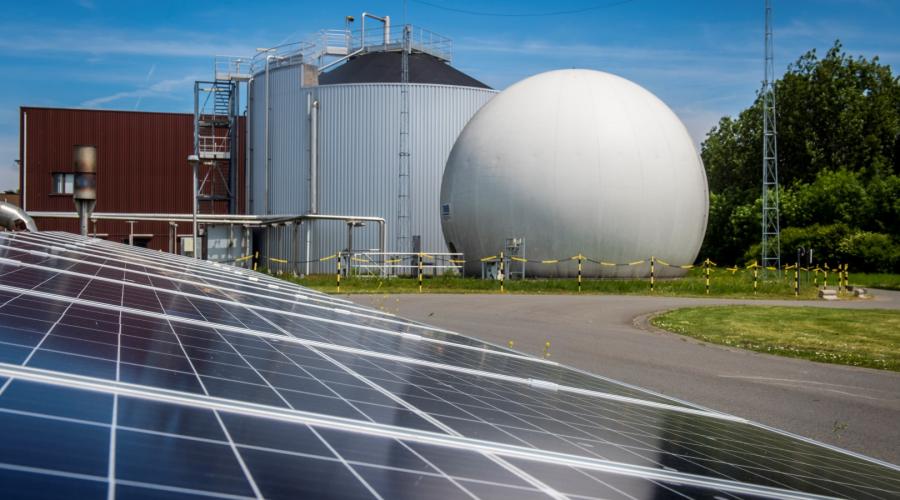Acting green
While keeping our ecological footprint as small as possible, we aim to generate positive impact.
Our ambitions
Water quality
The aquatic ecosystem is central.Since one stream is more vulnerable than another, it is important to know what the actual watercourse needs in order to achieve good quality. Together with the Flanders Environment Agency (VMM) we selected about 50 plants where more phosphorous is removed in the treatment process than required.
The sewers in Flanders are predominantly of the combined type which means that they transport both waste water and rainwater. Emergency outlets or overflows into a watercourse are provided at certain locations in order to prevent sewers overflowing in the event of heavy rainfall. That admittedly diluted waste water can affect the water quality in brooks and streams. At the request of the Flemish Region, Aquafin started work on the further development of an overflow monitoring network. By 2025, we will be carrying out permanent monitoring activities at a total of 1,600 overflow locations. Priority will be given to overflows which have the most impact on the watercourse, overflows at critical locations in the system and the replacement of monitoring devices at locations that up to 2021, were monitored by the Flemish Environment Agency. The results of the monitoring network can be used to plan targeted investments in order to address the negative impact that overflows have on water quality.
Climate adaptation
Aquafin wants to boost the integration of blue-green networks in Flanders. We strongly believe they're essential for climate adaptation en stimulate biodiversity. That's why we advice cities and municipalities to seize every opportunity in infrastructure projects to create more room for water and to create added value for the environment.
Our website blauwgroenvlaanderen.be provides information about possibilities in public spaces, schools and private gardens.
A waste water treatment plant is the ideal biotope for all kinds of insects, birds and the vegetation they need. By fully committing to an eco-friendly orientation, native vegetation and ecological management, we contribute to conserving our planet, even if only for the little bits over which we have control.
Climate mitigation
In an ambitious and substantiated way we are striving for climate neutrality. The most tangible and concrete aspects we have been working on for many years are our own energy targets. The transport and treatment of domestic waste water is a highly energy-intensive process, making Aquafin one of the largest energy consumers in Flanders. In order to keep control of our energy bills and carbon emissions, since 2010 we have set ourselves the goal of becoming 1% more energy-efficient every year compared to model consumption and therefore in relation to the expansion of our assets. Year after year, we have achieved that goal which means that by the end of 2022, we had recorded efficiency gains of approximately 13.5% compared with 2010. We realised these gains mainly by replacing outdated, energy-gruzzling equipment with new energy-friendly variants and by optimising automatic controls in the treatment process.
We're also working on phasing out the use of fossil fuels by 2030. In that context, a programme for electrifying the heating of our service buildings is currently carried out and we are still working to make our vehicle fleet greener too. But the biggest step will be taken in 2026 when two new sludge dryers will be commissioned. These will only use industrial residual heat while we will still partly be using natural gas in our dryers until then.
Aquafin also produces energy. The residual sludge produced during the treatment process is a form of biomass. Half of this biomass is digested at one of our 13 digestion plants spread throughout Flanders. We convert the biogas produced in this way into electricity and heat and at one WWTP, it is now converted into biomethane. Over the next few years, we will be adding another 4 biomethane units.




